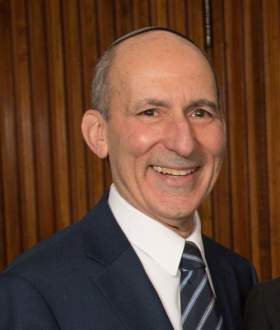Gratitude
This Shabbat, January 15, Jews around the world will turn to the Book of Exodus chapters 13:17 through 17 in the weekly cycle of Torah study. These chapters mark an inflection point. Pharaoh releases the enslaved Israelites; they cross the Sea of Reeds and begin a journey toward Mt. Sinai and the land of Israel. While the Torah portion is known as B’Shalach – “he (Pharaoh) sent,” setting the scene for what follows – the shabbat is commonly known as Shabbat Shirah, the Sabbath of Song.
Famously, when Moses and the people Israel reach the other side of the sea – and are witness to their pursuers, stuck in the mud, destroyed in their attempt to retrieve their recently liberated slaves – they sing a song of praise and thanksgiving; hence, the name “Sabbath of Song.” The haftarah -- the prophetic selection read on this particular shabbat – is taken from the Book of Judges. Its highlight is the song of the prophetess Deborah who, together with Barak son of Avinoam, led the Israelites in battle against an oppressor, generations later. Upon emerging victorious, they, too, sang a song of praise and thanksgiving.
King David, who faced many challenges and emerged successful, is known in Jewish tradition not only for establishing Jerusalem as the capital of the unified kingdom over which he ruled, but for authoring psalms, songs of praise and thanksgiving. The Talmud includes a fascinating statement about one of David’s descendants, King Hezekiah, who reigned 300 years after his illustrious ancestor. Hezekiah, as King David before him, enjoyed abundant blessing; among other things, he survived the military might of Assyria, as well as recovering from serious illness. The Talmud suggests that, had Hezekiah, as his ancestor David, offered expressions of gratitude, he might have been the messiah. The comment underscores the value that Judaism attaches to recognizing and acknowledging the good fortune that we daily experience.
“Jew” derives from Judah (an ancestor of King David), one of the sons of Jacob and Leah. Leah named her fourth son Judah, from a Hebrew word meaning to praise. Thus, the very appellation “Jew” connotes giving praise. From acknowledging the gift of awakening in the morning, to appreciating the material and sensory capacities we possess, “Jewish prayer,” as the late Rabbi Jonathan Sacks wrote, “is an ongoing seminar in gratitude.” Let us remain ever mindful and appreciative of the blessings we enjoy; they are surely cause for “shirah,” song and thanksgiving.
Dr. Gil Graff is the Executive Director of BJE: Builders of Jewish Education

